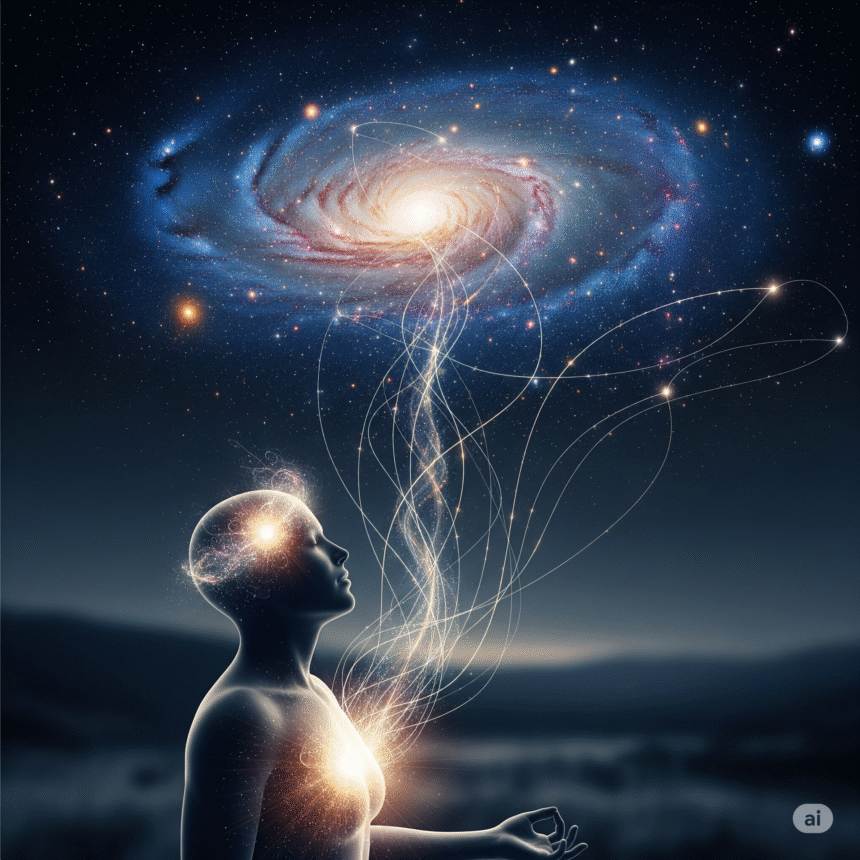Are Ancient Rituals Becoming Mere Spectacles in the Modern World?
Humanity’s connection to the cosmos has long been reflected in spiritual practices and rituals. Across cultures, these acts are more than symbolic—they represent a dialogue between the individual, the universe, and the divine. In India, deeply rooted traditions like Vedic rituals, temple worship, and seasonal festivals embody this cosmic connection, reminding us of our place in the grand scheme of existence.
However, as these practices evolve to fit the modern world, critics question whether their deeper spiritual essence is being overshadowed by commercialization and spectacle. Are we preserving their significance, or are we losing touch with the sacred in the rush to modernize tradition?
The Cosmic Connection in Ancient Practices
India’s spiritual practices often center around the cosmos. Vedic rituals, such as the yajna (sacred fire ceremony), are explicitly designed to align human life with universal forces. The Atharvaveda, for instance, speaks of harmony between the individual and the elements of nature, emphasizing that rituals are acts of gratitude to sustain cosmic balance.
The 2023 National Symposium on Vedic Sciences in Delhi highlighted these practices, calling for a renewed focus on their scientific and spiritual dimensions. Scholars noted that rituals like havan not only symbolize purification but also promote ecological awareness by encouraging sustainable practices.
Festivals: Bridging the Human and the Divine
Indian festivals are another way the cosmos finds expression in everyday life. Diwali celebrates the triumph of light over darkness, while Makar Sankranti marks the transition of the sun into Capricorn, reflecting the cosmic rhythm.
In 2023, the Ministry of Culture launched the Festivals of the Cosmos initiative to educate the younger generation about the celestial significance of these events. Interactive programs at schools and universities across India explored how astronomy and spirituality intersect in festivals like Holi, which is tied to the spring equinox and symbolizes renewal.
Modern Practices: Between Reverence and Commercialization
As spiritual practices adapt to modern lifestyles, debates arise about their authenticity. Critics argue that rituals often become grand spectacles, focusing on visual appeal rather than their deeper purpose. For example, the rising trend of extravagant Ganesh Chaturthi celebrations, with massive idols and loud processions, has sparked discussions about environmental sustainability and spiritual integrity.
The 2023 EcoSpiritual Conference in Mumbai addressed these concerns, advocating for eco-friendly materials and quieter celebrations to align with the original intent of reverence and gratitude. Prominent spiritual leader Sri Sri Ravi Shankar emphasized during the event, “The cosmos thrives on harmony. When our practices disrupt nature, we must question whether we are truly connecting to the divine.”
The Role of Science in Rediscovering Cosmic Practices
Advances in science are helping to validate the cosmic roots of many spiritual practices. Studies by the Indian Space Research Organisation (ISRO) in 2022 revealed astronomical alignments in ancient temple architecture, underscoring the deep understanding of the cosmos embedded in Indian culture. Temples like Konark’s Sun Temple and Tamil Nadu’s Brihadeeswarar Temple demonstrate how spiritual practices were integrated with celestial phenomena.
This intersection of science and spirituality is also reflected in meditation practices. Research from the National Institute of Mental Health and Neurosciences (NIMHANS) in 2023 confirmed that meditative techniques, derived from Vedic traditions, help synchronize brain activity with natural rhythms, enhancing mental clarity and emotional resilience.
Reclaiming the Spiritual Essence
To truly honor these practices, we must move beyond superficial interpretations and reconnect with their original purpose. Recent efforts like the Sanatana Heritage Revival Project, initiated in 2023, aim to bridge the gap between ancient wisdom and contemporary relevance. Through workshops, digital archives, and educational programs, the initiative seeks to inspire a deeper understanding of the spiritual significance behind our rituals.
Conclusion: A Sacred Dialogue with the Universe
The spiritual practices that connect us to the cosmos are not merely relics of the past—they are vital pathways to understanding our place in the universe. As we adapt them for modern times, the challenge lies in preserving their essence while embracing innovation.
Are we ready to engage with these practices as sacred acts of alignment with the cosmos, or will we let them become hollow rituals? The answer lies in our willingness to reflect, question, and reconnect with the timeless wisdom they offer. Only then can we truly honor the cosmic dialogue that has shaped humanity for millennia.


Leave a Reply